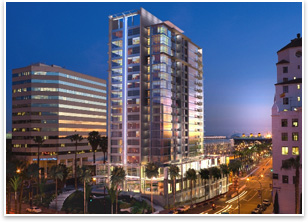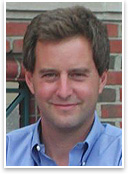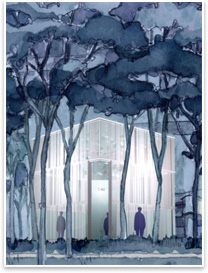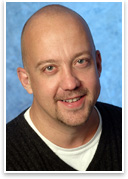
Ten
Years Later: The Young Architects Award Recipients Summary: AIArchitect checked in with three practitioners who were among the first recipients of the Young Architects Award. Christopher Coe, AIA, of California; and Keith Moskow, AIA, and George Thrush, FAIA, both from Boston, advise today's young architects to define for themselves what it means to be an architect and revisit the passion that guided them to the profession in the beginning.
Moskow: I won the first Sustainable Design Award from the Boston Society of Architects for the Conservation Law Foundation in Boston. The intent was to do a sustainable project that didall the right things for the environment and pay itself back. That is something that we have followed through on because it is work that we truly believe in doing.
Moskow: Our current most exciting and challenging project is the 9/11 memorial for Logan Airport. To expand as architects, we put together the Houses of Martha's Vineyard, a survey of 24 projects built over the last 20-plus years on the island. Now we're working on a book on the architecture of environmental organizations' headquarters, many of which practice what they preach.
Identify what clearly means the most to you and just pursue that
with absolutely unrelenting passion.
Moskow: Keep an open mind, keep thinking holistically, and know that there are going to be ups and downs. Keep thinking about why you went into architecture in the first place. Each year, we do at least one theoretical project outside of competitions. We feed what we learn from these projects back into our paid work.
|
||
Copyright 2006 The American Institute of Architects. All rights reserved. Home Page |
||
news headlines
practice
business
design
recent related
› Ar2: Call for Young Architects
› Young Architects Honored-They Are All Winners!
› The AIA's Emerging Professionals Web site
This article condenses conversations the author had with the award recipients.
The National Associates Committee is celebrating its 15th birthday this year.
› Christopher Coe, AIA, is a principal at Gruen
Associates, Los
Angeles. Prior to join Gruen, he was managing director and director of
design at Arquitectonica.
› Keith Moskow, AIA, is principal of Moskow
Architects, Boston.
› George Thrush, FAIA, is the director of the School
of Architecture at Northeastern University, Boston.
Image:
1. Christopher Coe, AIA
2. “Edgewater,” by Christopher Coe, AIA, Gruen Associates, a 24-story mixed-use high-rise tower with 155 residential condominium units and 30,000 square feet of retail and a public parking facility. It is a catalyst project for the renaissance of downtown Long Beach, Calif.
3. Keith Moskow, AIA
4. Boston Logan International Airport 9/11 Memorial design, by Moskow Architects
5. George Thrush, FAIA
6. Ocean House I, by George Thrush, FAIA

 What were you doing when you received the award?
What were you doing when you received the award?
 What is the most exciting and challenging aspect of practice?
What is the most exciting and challenging aspect of practice?
 What advice do you have for young architects?
What advice do you have for young architects? Thrush:
Thrush: